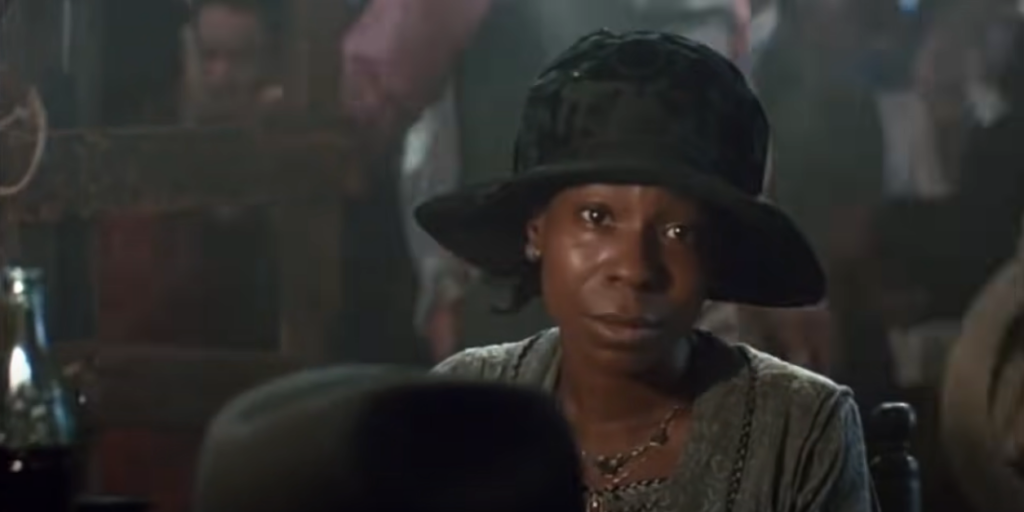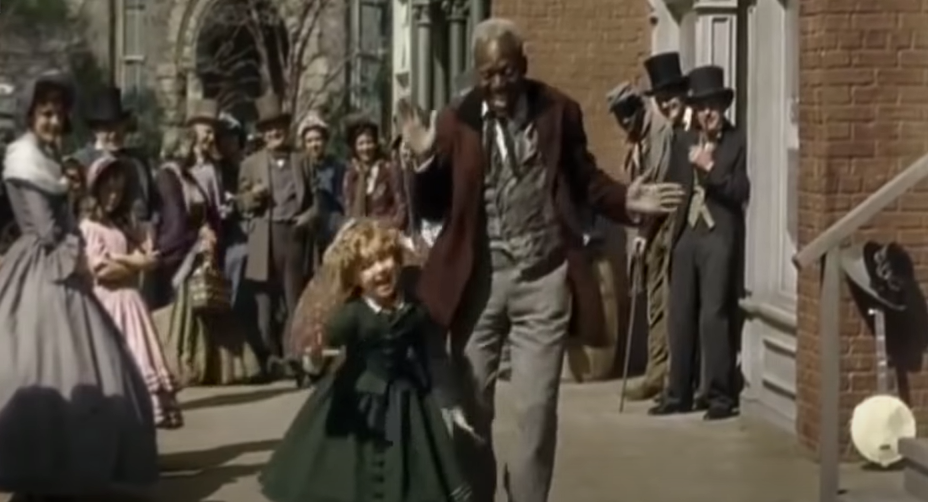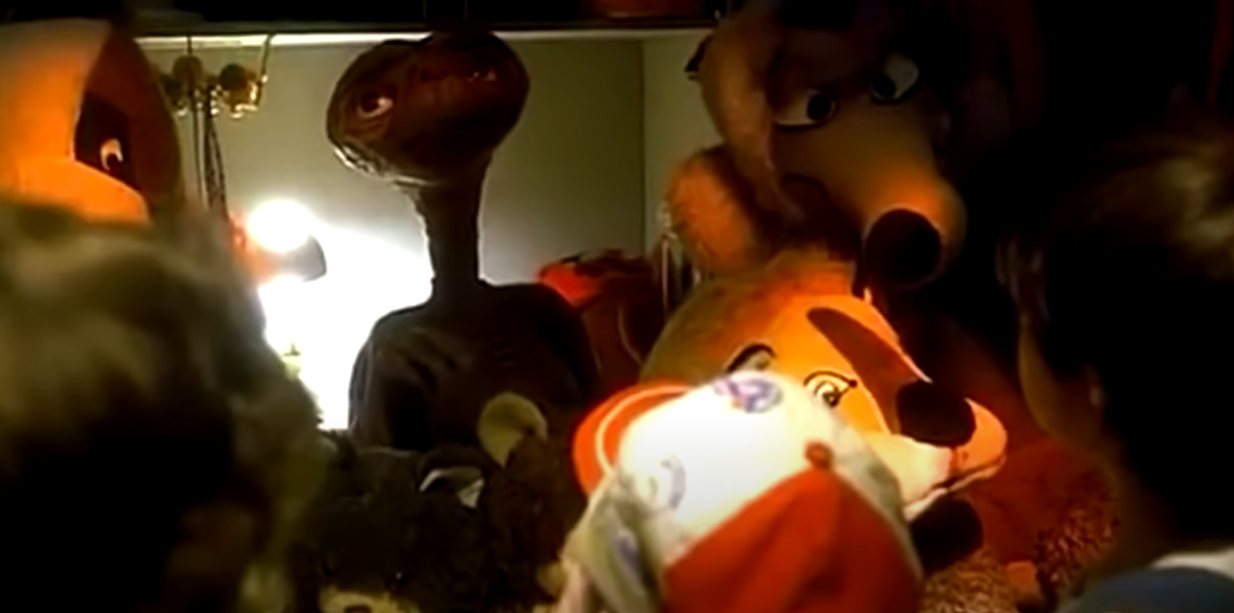When one speaks of cinematic evolution, few periods in history are as rich and transformative as the 70s and 80s. Black cinema, in particular, was revolutionized in these decades, witnessing the birth of new genres, the rise of iconic actors, and the exploration of complex socio-cultural themes.
The 70s: The Rise of Blaxploitation
The 1970s witnessed the rise of Blaxploitation, a groundbreaking genre that placed black characters and black life at the forefront of Hollywood storytelling. Driven by the need for representation and a sincere desire to portray the real experiences of African Americans, these films embraced a diverse range of genres, encompassing crime, action, horror, and comedy.
While some critics raised concerns about potential reinforcement of stereotypes, there is no denying the historical importance of Blaxploitation in empowering African American actors, directors, and audiences. Moreover, its impact continues to reverberate in contemporary films, popular culture, including music and fashion.
Major Films and Themes
Blaxploitation cinema emerged in the early 1970s as a significant movement in American filmmaking, providing a platform for African American actors and filmmakers to tell stories that reflected the realities of their communities. These films challenged racial stereotypes and addressed issues of social injustice, often with an action-packed and thrilling narrative. Let’s explore some major films and their unique themes that contributed to the success and impact of the Blaxploitation genre.
| Movie Title | Year | Director | Synopsis |
|---|---|---|---|
| Sweet Sweetback’s Baadasssss Song | 1971 | Melvin Van Peebles | This groundbreaking film, written, produced, directed, and starring Melvin Van Peebles, follows the journey of Sweetback, a male sex worker who goes on the run after killing two white policemen in self-defense. As he escapes, the film becomes a symbolic representation of the African American struggle against racial injustice and police brutality in society. |
| Shaft | 1971 | Gordon Parks | Directed by Gordon Parks, Shaft introduces John Shaft, a private detective with an unapologetic attitude and a penchant for taking on dangerous cases. Richard Roundtree’s portrayal of Shaft exudes charisma and confidence, challenging the notion that action franchises were reserved solely for white actors. The film focuses on justice and empowerment within the African American community. |
| Super Fly | 1972 | Gordon Parks Jr. | Directed by Gordon Parks Jr., Super Fly delves into the life of Priest, a cocaine dealer who plans one last big score before leaving the drug business. This film takes a unique approach by presenting an anti-hero as the protagonist, exploring the complexities of his choices and motivations. The movie also benefits from Curtis Mayfield’s soulful and iconic soundtrack. |
| Coffy | 1973 | Jack Hill | Breaking gender stereotypes in the Blaxploitation genre, Coffy, directed by Jack Hill, stars Pam Grier as the titular character, a nurse who takes matters into her own hands to seek justice and revenge for her sister’s suffering due to drug addiction. This film highlights female empowerment, with Coffy challenging traditional female roles and showcasing her strength as a vigilante. |
Blaxploitation films, with their engaging storytelling, strong African American leads, and themes that resonate with audiences, left a lasting impact on American cinema. While the genre faced criticisms for sometimes perpetuating negative stereotypes, it was undeniably an essential stepping stone in the representation of African Americans in Hollywood.
Moreover, the Blaxploitation era served as a catalyst for the emergence of more diverse voices in the film industry and opened doors for African American filmmakers, actors, and crew members. It fostered a sense of pride and empowerment within the Black community, showing that they could create and lead successful films that resonated with a broad audience.
Impact on Music and Fashion
Blaxploitation films are often as memorable for their music as for their narratives and characters. This era was marked by notable film soundtracks that captured the essence of African American urban life and culture.
- The soundtrack of Super Fly, composed and performed by Curtis Mayfield, is considered a masterpiece. Its socially-conscious lyrics perfectly mirrored the film’s themes and helped to elevate the narrative;
- Isaac Hayes’ theme for Shaft was another monumental work that contributed significantly to the film’s success. The iconic “Theme from Shaft” won the Academy Award for Best Original Song in 1972, the first time an African American composer won the award.
Fashion was another crucial aspect that gave Blaxploitation films their unique style. The 70s was a time of vibrant fashion trends, and Blaxploitation films captured this spirit perfectly. Characters were often seen in flashy clothes, large hats, bell-bottom pants, and platform shoes. This trend-setting fashion became synonymous with the genre, leaving a lasting impact on pop culture.

The 80s: A Shift in Narrative
The 80s marked a shift in black cinema. Although Blaxploitation played a significant role in increasing black representation on screen, by the 80s, the genre began to lose steam. Critics argued that the stereotypical and exploitative portrayals were harmful and lacked nuance. This decade saw a transition towards more diverse and complex storytelling, bringing a broader range of the black experience to the screen.
Prominent Films and Themes
The world of cinema has always been a powerful medium to tell stories that touch the hearts and minds of audiences, shedding light on important societal issues and promoting diversity and inclusion. Here are some prominent films from different genres, each unique in its approach, that have contributed to shaping the landscape of modern cinema and exploring essential themes.
| Movie Title | Year | Director | Synopsis |
|---|---|---|---|
| The Color Purple | 1985 | Steven Spielberg | Directed by the acclaimed Steven Spielberg, The Color Purple is an adaptation of Alice Walker’s Pulitzer Prize-winning novel. The film beautifully and powerfully portrays the lives of African American women in the early 20th century. It delves into the complex issues of sexism, racism, and abuse faced by the protagonist, Celie (played by Whoopi Goldberg), and her journey towards self-discovery and empowerment. |
| Coming to America | 1988 | John Landis | Coming to America is a delightful and heartwarming comedy that stars the charismatic Eddie Murphy as Akeem, an African prince who travels to New York City to find a wife who loves him for who he is, rather than his royalty. Directed by John Landis, the film humorously examines cultural clashes and the complexities of identity and love. Eddie Murphy’s versatile performance made it a box office hit. |
| Do the Right Thing | 1989 | Spike Lee | A thought-provoking masterpiece by the renowned filmmaker Spike Lee, Do the Right Thing presents a poignant exploration of racial tensions in a Brooklyn neighborhood on a hot summer day. The film skillfully delves into the complexities of racism, social injustice, and police violence, offering a powerful commentary on the realities of urban life. |
These films have left a lasting impact on cinema and society, each contributing in its unique way to the representation of diverse perspectives and the exploration of important social themes. The Color Purple challenged stereotypes and elevated the voices of African American women, shedding light on their struggles and triumphs. Coming to America celebrated African culture and humor while breaking barriers for diverse casting. Do the Right Thing continues to be a cultural touchstone, reminding us of the ongoing need for dialogue and action in the fight against racism and inequality.
Pioneering Actors and Directors
The 80s witnessed the rise of new stars and the continuation of others who had established themselves in the previous decade.
- Eddie Murphy rose to prominence with films like “Coming to America” and “48 Hrs,” quickly becoming one of Hollywood’s top box office draws;
- Danny Glover gave an unforgettable performance in “The Color Purple” before moving on to star in successful franchises like “Lethal Weapon.”;
- Whoopi Goldberg made her acting debut in “The Color Purple,” earning her an Academy Award nomination for Best Actress;
- Spike Lee emerged as a revolutionary filmmaker with his debut film “She’s Gotta Have It” in 1986. By the end of the decade, he had firmly established himself as a leading voice in black cinema with the critically acclaimed “Do the Right Thing.”
Influences on Contemporary Cinema
The influence of black cinema from the 70s and 80s can still be seen in today’s films. The exploration of black narratives, the rise of black actors in lead roles, and the focus on unique storytelling have all paved the way for modern black cinema. Contemporary directors like Jordan Peele, Ava DuVernay, and Barry Jenkins have been known to reference and build upon the themes and styles introduced during these decades.
To gain a deeper understanding of the profound influence of black cinema in the 70s and 80s, you might want to check out this detailed video for visual insights:
Conclusion
The impact of black cinema in the 70s and 80s cannot be overstated. It broke barriers, created stars, and changed the narrative of black representation in Hollywood. Its legacy continues to influence modern cinema, demonstrating the enduring power of these groundbreaking films.
FAQ
The decline of Blaxploitation can be attributed to criticism it received for reinforcing negative stereotypes about African Americans. There was a call for more nuanced and diverse representation, leading to a shift in the genre by the late 70s.
The 80s was a breakthrough period for actors like Eddie Murphy, Danny Glover, and Whoopi Goldberg, who became major box office draws during this decade.
Recurring themes in black cinema of the 70s and 80s include racial injustice, urban crime, the black experience in America, the impact of drugs on African American communities, and the struggle for civil rights.




